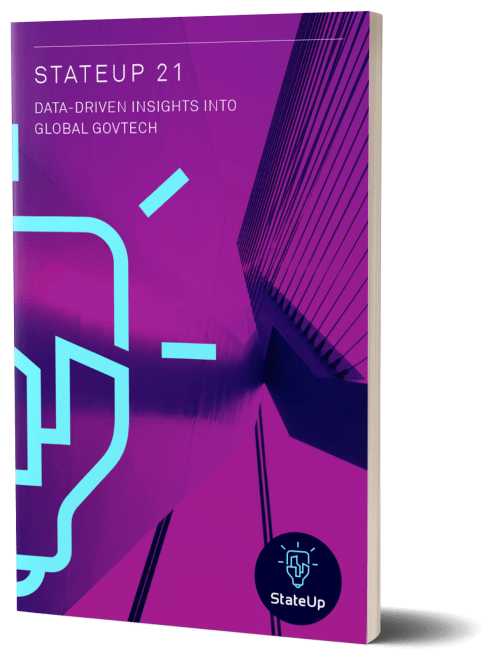Public-Purpose Technology Intelligence
Summary
This information is accurate as of January 2021. For more up-to-date information, access Nebula, our Public-Purpose Tech intelligence platform. Join with our Nebula Community Membership, or upgrade to a Nebula Pro Membership.
- Founded in 2015
- Total funding: £16.3 million
- Latest funding round: £10.4 million
- Investors include Salesforce Ventures, M12 (Microsoft’s Venture Fund), TLV Partners, Vertex Ventures
- HQ in Tel Aviv, Israel
- 51-100 FTEs
- Key clients across the US include governments of Los Angeles, CA; Chicago, IL; Austin, TX; Phoenix, AZ; New Orleans, LA; Las Vegas, NV; Chattanooga, TN; Savannah, GA.
- Key executives: Eyal Feder-Levy, CEO and Co-Founder: advisory board member of the World Economic Forum’s “Future of Cities” project, former COO of the Interdisciplinary Research Center for Cities and Urbanism at Tel Aviv University; Ido Ivri, Co-Founder and CTO: experienced tech consultant and software developer, board member of Wikimedia Israel.
Profile
Tel Aviv-based Zencity enables data-driven decision-making for local government using social listening. The startup gathers data from sources including social media, local news channels, emails, CRMs, Google analytics, and 311 (non-emergency government hotlines). While much of this information is already available to local municipalities, it is often decentralized and difficult to access. Once collected, Zencity’s proprietary AI algorithm sorts and codes the data. An online dashboard (also accessible through a mobile app) then presents this information in an easy-to-understand format.
Zencity’s dashboard offers a wide range of features. One highlight is their tool that tracks and displays sentiment analysis by topic, event, or hot-button issue. For example, Zencity will uncover what percentage of all conversations about a city have to do with the management of public parks. Within these particular conversations, Zencity uses natural language processing (NLP) to determine what portion of chatter is positive, neutral, or negative. This analysis helps city policy makers assess how citizens feel about key issues, which can lead to more effective service provisioning and higher satisfaction rates.
The dashboard can also send alerts to the relevant department or agency based on trends its AI algorithm flags up. Its Benchmarker platform allows officials to access comparative data from approximately 180 municipalities, providing insights on how their residents’ concerns compare to similar communities. For Zencity CEO Eyal Feder-Levy, “the ability to provide municipal leaders with actionable data is a big step in further improving the efficiency and effectiveness of their work.”
Plans
- Help government agencies respond to the public health and economic crises brought on by the Covid-19 pandemic.
- Use the US$13.5 million they raised in late summer 2020 to improve their software and continue expanding to new cities.
- Expand the types of government agencies they work with.
- Leverage their access to comparative data through Benchmarker.
Who Should Speak To This Company
Local and state government agencies looking to better understand their citizens, city managers, county administrators, and public sector department leaders. They have an intimate knowledge of the US market.
Company In Action
When the Fort Lauderdale, Florida city council accepted football star David Beckham’s unsolicited proposal to build a stadium on one of the last available open spaces for development, the city faced plentiful online criticism.
The council turned to Zencity’s platform to analyze the reaction, finding that the negative sentiment was coming from a loud minority of citizens (see red sections of the illustration below). Positive (green) and neutral (grey) opinions were far more positive.
These insights helped the city decide to go forward with the project.


StateUp View
We have chosen Zencity because of its innovation approach to data-driven decision-making and because of its traction with city governments to date. Listening has been described as in ‘democratic deficit’, with citizens feeling unheard and unvalued by policy decision-makers. Many participatory methods have emerged to address this deficit, but they often rely on one-off events. This might not capture the full picture of how citizens feel about a particular issue. With Zencity, issues are monitored 24/7. Since new information is provided constantly, city managers can regularly trace changes in opinion. They can also ensure that they are listening to a broad range of stakeholders, mitigating the risk of only listening to the loudest voices. This more holistic opinion gathering can provide more accurate data to drive decisions, which the many city governments with which Zencity works seem to recognise. One indicator of successful listening—which can foster trust—is citizens feeling that they have been genuinely listened to. Cities that engage Zencity's technology must remember this important step.

Get Access To The Full Report
- Discover data-driven insights into key GovTech subsectors and technologies
- Learn how investment into GovTech is changing
- Read the full StateUp 21 member profiles



